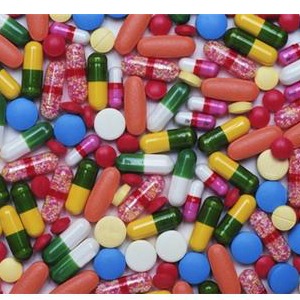From Dr Mohamad Etminan, Teddington
While checking a 64-year-old lady’s blood pressure, which had been controlled on one drug for years, I realised something wasn’t quite right. ‘It is fairly high today, Mrs X’, I said. ‘I knew that’, she responded. After asking what she meant she explained: ‘I always used to have a pink box but this time the chemist gave me different ones in blue box. As soon as I started taking them I felt terrible.’ I was pretty sceptical but we agreed to persuade the chemist to change the brand if possible and three weeks later Mrs X came back with a normal blood pressure.
A 75-year-old lady had taken Zispin (mirtazepine) for years. After her first prescription for the generic version she came back in a state of distress, being unable to sleep, irritable with anxiety and feeling low – the very symptoms she had before starting the medication. She wanted the original drug but I explained that the price difference was too great and I really couldn’t prescribe it. Now this pensioner pays for the branded drug with a private monthly prescription.
Over the years we have all heard similar stories, brushing them aside without further thought. Patients who had their cholesterol on target coming back with a high reading, swearing they have been taking their medicine. We don’t believe them but all we can do is increase the dose. I have been a GP for over 25 years and I remember when ACE inhibitors or ARB drugs first came on the market and we had most of our hypertensive patient’s blood pressure controlled on one drug or sometimes in combination with diuretics. Now we have dozens of patients on four different drugs and still struggle to hit the target. Why? I believe the answer is generic prescribing.
For the past 20 years I have suffered with severe reflux. I used to take a couple of weeks worth of PPIs to calm the symptoms then stop until the problem recurred. But for the last few years I have had to take them regularly one a day. It got to the stage where my symptoms were never fully controlled, despite the lansoprazol, and after three months of consistent indigestion and waking up middle of the night with severe pain my GP suggested an endoscopy. I agreed but asked to try the non-generic version (Zoton) of the medicine for one month.
After only two weeks all my symptoms disappeared and now I am down to one a day and hoping to reduce further.
I feel cheated and am not sure what exactly I have been taking? A piece of chalk perhaps? If I had ended up with an endoscopy, it would have cost NHS around £500. After the endoscopy, I probably would have been advised to have anti-reflux surgery. Hundreds of anti-reflux procedures are done every year for patients uncontrolled on PPIs. What do we do if a patient’s angina is controlled on medication but he/she comes back with further pain? We add more anti-angina medication or eventually he/she ends up having more tests, or even invasive procedures. Do we ever stop and think that perhaps the medicine is ineffective? Reflux symptoms or uncontrolled BP are easy to pick up but what about uncontrolled epilepsy, or Parkinson’s or drugs used for prevention of heart attacks and strokes, or generic medicines used in cancer treatment. How effective are they?
The cost of a daily Zoton is almost the same price as two daily generic ones. When the patency of a drug is expired, the NHS should use its power to negotiate with the company and reduce the price to generic level in exchange for all the prescriptions to be issued in brand name.
I have no doubt what ever I said would be dismissed by those who think the manufacture of medicines is under strict control. But I am not sure how one can control thousands of generic medications produced by hundreds of companies.
I do not believe we are saving money by using generic medication. It is a false economy where we end up spending even money on procedures such as endoscopies but also risk our patients’ lives.
Pulse October survey
Take our July 2025 survey to potentially win £1.000 worth of tokens













